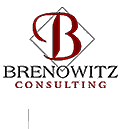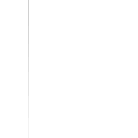


|
Issue # 2 - The Attention Economy
by Randi Brenowitz Issue # 2 Brenowitz Consulting is pleased to bring you this inaugural issue of Tools for Teams, our bi-monthly electronic newsletter. Each issue will explore one of the central themes of today's challenging business environment. We will present our current thinking, relevant readings, book reviews, and other resources--all designed to give you practical tools to improve productivity through teamwork and collaboration Feel free to forward this newsletter to your friends and colleagues. To subscribe, send e-mail newsletter@brenowitzconsulting.com with "subscribe" in the subject line. To unsubscribe, email newsletter@brenowitzconsulting.com with “unsubscribe” in the subject line. You may quote anything herein, with the following attribution: “Reprinted from Tools for Teams, © Brenowitz Consulting (www.brenowitzconsulting.com).” We welcome your comments and suggestions for future topics. Just email us at info@brenowitzconsulting.com.
* * * * *
"Financial Capital" is a familiar concept. In recent years, we have also been introduced to "intellectual capital," "social capital," and now, "relationship capital" (courtesy of Glen Toby of Hanover Strategies). I was, therefore, intrigued by the concept of "attention capital" introduced in Thomas Davenport and John Beck's book, The Attention Economy (Harvard Business School Press, 2001). The book had my attention from the beginning, as the layout and colors look more like an issue of Fast Company than a text published by Harvard University Press. Except for chapters 2 and 3, which are extremely scientific, that feeling continues throughout the book. Davenport and Beck recognize that in today's information-rich environment, the scarcest resource is not talent or technology—it's attention. They explain that the problem for teams and team leaders lies on both sides of the attention equation: on getting and holding the attention of information-flooded team members, senior management, consumers, and stockholders; and parceling out the team's and leader's attention in the face of overwhelming information options. As the amount of information increases, the demand for attention also increases. Davenport and Beck believe that the only resolution of this equation is to learn to mange attention as a critical and finite resource…or fail. Time is not the same as attention, and time-management is not the same as attention-management. Therefore, using the time-management techniques we all learned in the 70's will not get us the results we desire. Here are some of the concrete suggestions offered by Davenport and Beck:
More than ever, leaders have to find innovative means of capturing and directing attention. If you are a team leader, you must learn to focus your own attention, attract the right kind of attention to yourself and your team, direct the attention of those who follow you, and maintain the attention of both your internal and your external customers. A good leader knows how to attach important and powerful meaning to the issues on which he or she would like the team to focus their attention. In chapter 8 (Leadership and Attention) Davenport and Beck give helpful hints to help you manage attention the way you manage other scarce resources. In chapter 12 (From Myopia to Utopia), they give suggest policies to help leaders filter out unneeded data and focus attention on important information. Although I did not agree with all of Davenport and Beck's suggestions, they sure did get my attention. * * * * * * * * * * Additional Resources on this Topic
What’s New at Brenowitz Consulting Randi's writing:
|
||||||||
|
||||||||